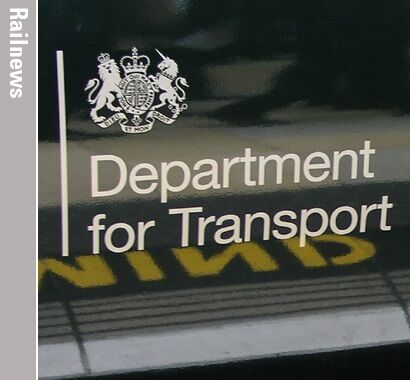The RMT has sounded a warning shot in response to growing speculation that the Department for Transport is preparing to announce the closure of most station ticket offices in England. If it happens, it could ignite a new industrial dispute on National Rail.
The reform includes moving staff from the offices to concourses and platforms, where they can help passengers, but the RMT is bitterly opposed to the idea because it fears that many jobs could be lost.
Closures are also being opposed on the grounds that less able people and the elderly in particular often rely on ticket offices to help them with their journeys. Because they are less likely to be users of smartphones or computers, some have no access to the internet.
The change would come at a time when increasing numbers of smartcards are being introduced. The latest operator to announce a pilot scheme with cards is c2c, although it has not announced any ticket office closures.
RMT general secretary Mick Lynch said: ‘There are rumours circulating online that the DfT plans to announce mass ticket office closures next week.
‘The train operating companies and the government must understand that we will vigorously oppose any moves to close ticket offices.
‘We will not meekly sit by and allow thousands of jobs to be sacrificed or see disabled and vulnerable passengers left unable to use the railways as a result.
‘RMT will bring into effect the full industrial force of the union to stop any plans to close ticket offices, including on our upcoming strike days of July 20, 22 and 29 in the national rail dispute.’
Although the DfT has not yet commented officially on claims that an announcement is imminent, the Guardian reported that one government source was accusing Mick Lynch of ‘trying to scaremonger’, saying: ‘We’ve made no secret about the fact that the railways need to reform in order to survive, but this should be in a way that works for passengers.’
The Rail Delivery Group said the industry had been ‘open and honest about the need for the railway to evolve’, but up until now negotiations had been continuing to ‘go round in circles’ on reforms such as moving staff from ticket offices to other parts of stations.
It continued: ‘While the industry is now looking at how to move forward, any changes would be subject to employee and public consultations.
‘Staff always remain front of mind so as you would expect from a responsible employer, if and when the time comes for proposals on ticket offices to be published, they will be the first to know.’
Any changes initiated by the DfT seem likely to affect only English stations. The nationalised domestic operators in Scotland and Wales manage most of the stations in those countries, and any reforms would be a matter for the devolved governments.
Station ticket offices are increasingly uncommon in other countries. Dutch Railways relies on the Netherlands national ‘chip and pin’ smartcard, and only maintains inquiry offices at about eight of its largest stations. Even then, these offices feature work stations where passengers are encouraged to make travel enquiries on line for themselves. Nederlandse Spoorwegen began to discourage the use of its ticket offices before moving ahead with closures, by charging passengers a small fee if they bought tickets at a window rather than using a machine.


